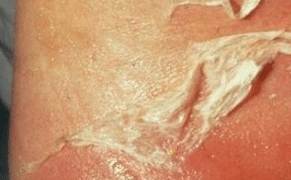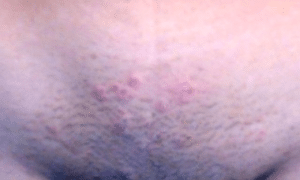A critical focus on mosquito bite allergy, pictures, swelling, symptoms how to get rid and treatment.
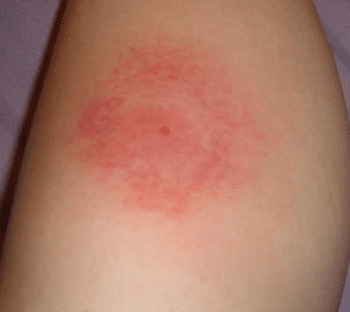
mosquito bite allergy
Mosquito Bite Allergy
Nearly everyone is very sensitive to mosquito bites. But for those people with severe allergies, symptoms might be more than just annoying: they might be downright serious. Most of the bites happen at either dusk or even dawn, when the mosquitoes are most active. While the male mosquitoes are much harmless thus feeding only on the nectar and water the females of the species are out for blood.
A female mosquito locks onto the victim by use of a combination of scent, exhaled carbon dioxide, and also chemicals in the person’s sweat. When she finds a more suitable meal, then she lands on an area of the exposed skin and eventually inserts her proboscis to draw the victim’s blood. The common symptoms — a telltale the red bump and also itching — aren’t brought about by the bite itself, but by a reaction of the body’s immune system to the proteins in the mosquito’s saliva.
Insect bites may sometimes become infected. Symptoms of an infected insect bite include:
- pus in or even around the bite
- swollen glands
- increased pain, swelling and redness in and around the bite
Some mosquito bites allergy will appear red and swollen, but for other types of bites these symptoms may not be normal and could indicate an infection.
Contact the doctor if you think the bite may have become infected, or if you’re concerned about the symptoms.
Researchers are very unclear as to the reasons, but the mosquitoes tend to prefer certain victims over others, including the men, people who are much overweight or even obese, and those who have type O blood.
Also, due to the fact that mosquitoes are very attracted to heat, wearing of the dark colors (that absorb heat) can make a person to be more likely to be bitten. People who live in humid, tropical climates are also at a higher risk.
The more the number of times a person has been bitten by the mosquitoes, the more likely they’ll be desensitized of mosquito bites allergy over time. That implies that adults typically have less serious reactions to the mosquito bites than the children do.
Common symptoms of the mosquito bites are the soft bumps on the skin that may become pink, red, and itchy. Symptoms may happen up to 48 hours after the initial bite. According to the studies, contact with a mosquito must be six seconds or longer so as to produce a reaction.
Contact must last at least six seconds for a reaction to happen. Chemicals in the mosquito saliva prevent blood from clotting and thus evoke a response that leads to localized redness, swelling as well as itching.
A mosquito bite can lead to a variety of reactions. People who have never been bitten before (primarily the young children) may not react at all. Thereafter, most of us develop a very tiny, itchy red bump that appears hours to days after they have been bitten and can last for a few days.
But, some people have a very serious mosquito bites allergy like the blistering lesions or even larger hives that is accompanied by the fever and joint swelling. At its worst, a mosquito bite can lead to anaphylaxis, a potentially life-threatening condition that is characterized by the throat swelling, generalized hives, or wheezing.
This reaction is rarely brought about by mosquitoes and is commonly associated with other stinging insects. If you have experienced this condition, consider consulting an immunology specialist, who can assist to determine the cause. Carry auto injectable epinephrine if you have been diagnosed with stinging insect anaphylaxis.
Mosquito Bite Allergy Symptoms
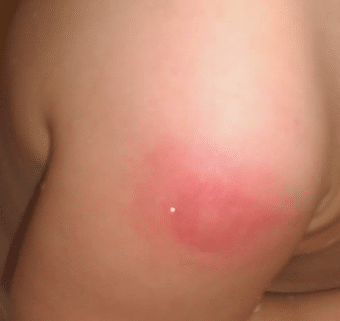
mosquito bite allergy symptoms
While not very much painful, the bite of a mosquito can create physiological responses in humans. When a mosquito inserts the proboscis through the skin, the saliva creates a small, red bump. These bumps can produce mild to very severe itching in most of the people.
Some people can also become less sensitive to the mosquito bites allergy through the repeated exposure, while others can develop allergic reactions repeatedly. Symptoms of an allergy are the blistering and inflammation, and also asthma like reactions. Mosquitoes also carry diseases like yellow and dengue fevers, malaria and are capable of passing them from one host to host.
In most of the cases, a mosquito bite produces a red, itchy bump that can bleed if scratched. Those with mild mosquito bites allergy may also take antihistamines so as to reduce itching and swelling. Consult a doctor before taking any new medications. Over time, some people develop immunity to the saliva of a mosquito and do not have any symptoms at all upon being bitten.
Symptoms of a more severe allergic reaction can include:
- large area of itching
- bruises near the site of the bite
- lymphangitis (inflammation of the lymph system)
- hives
- anaphylaxis (a very rare, life-threatening condition that results in swelling in the throat and even the wheezing and requires immediate medical attention)
Mosquito bites allergy aren’t the only concern that regards mosquito bites. Mosquitoes may also transmit serious diseases, like:
- malaria
- encephalitis (brain infection)
- yellow fever
- West Nile Virus
- meningitis
Signs that it may be something other than an allergic reaction are:
- fever
- severe headache
- nausea or vomiting
- fatigue
- light sensitivity
- neurological changes (such as muscle weakness on one side of the body)
Contact the doctor immediately if you have any of these symptoms.
Mosquito Bite Allergy Swelling
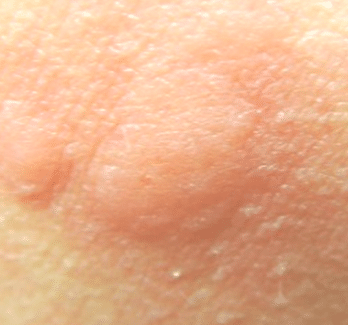
mosquito bites swelling
An insect bite or even a sting often leads to a small lump to develop, which is usually very itchy.
A small hole, or the sting itself, can also be visible. The lump can have an inflamed (red and swollen) area around it that can be filled with fluid. This is known as a weal.
Insect bites and stings usually clear up within several hours and can be safely treated at home.
Most of the people won’t have any severe symptoms of mosquito bites allergy after being bitten or even stung by an insect, but some other people can react badly to them as they’ve developed antibodies to the venom.
You’re more likely to have an allergic reaction if you’re stung by an insect. The reaction might be classified as:
- a minor localized reaction – which is normal and doesn’t need allergy testing, although the affected area will often be painful for a few days
- a large localized reaction – this can lead to other symptoms, like swelling, itching and a rash
- a systemic reaction – this often needs an immediate medical attention as it can lead to a potentially life-threatening allergic reaction (anaphylaxis)
Although insect bites and stings are a common cause of mosquito bites allergy and anaphylaxis, it’s rare to experience anaphylaxis after an insect sting, and it’s rarely fatal.
Large localized reactions and systemic reactions are mostly described in more detail as;
Large localized reaction
If you have a large localized reaction after being bitten or even stung by an insect, then a large area around the bite or sting will swell up. The area can measure up to 30cm (12in) across, or the entire arm or leg may swell up.
The swelling can usually last longer than 72 hours, but should begin to go down after a few days. This may be painful, but the swelling won’t be dangerous unless it affects the airways.
If you’re bitten many times by one or more insects, the symptoms will be more severe as a larger amount of venom will have been injected.
You may have an LLR several hours after being bitten or even stung. This include:
- a rash
- nausea
- painful or even swollen joints
Systemic reaction (SR)
A person is more likely to have a systemic reaction if he has been bitten or stung before and become sensitized, especially if it was recently. People who’ve been sensitized to bee stings are likely to have a systemic reaction than people who are stung by wasps.
Call the doctor immediately to request an ambulance if you’ve been bitten or even stung and have any of the below symptoms:
- wheezing, or difficulty breathing
- nausea or diarrhoea
- a fast heart rate
- dizziness or feeling faint
- difficulty swallowing
- a swollen face or mouth
- confusion, anxiety or agitation
It’s rare for an SR to be fatal, especially in children, although someone who have an existing heart or breathing problem is at an increased risk.
Bites from midges, mosquitoes and gnats normally leads to small papules to form on the skin that are normally very itchy. If you’re sensitive and experience mosquito bites allergy, you may develop:
- bullae – which is the fluid-filled blisters
- weals – circular, fluid-filled areas surrounding the bite
Mosquito bites in some areas of tropical countries can lead to malaria.
Other insect bites include;
Fleas
Flea bites may be grouped in lines or even clusters. If you’re particularly sensitive to the flea bites, they can cause a condition called papular urticaria, where a number of itchy red lumps form. Bullae may also develop.
Fleas from the cats and dogs can often bite below the knee, normally around the ankles. You may also get the flea bites on the forearms if you’ve been stroking or even holding your pet.
Horseflies
A bite from a horsefly can be painful. As well as the formation of a weal around the bite, you can also experience:
- urticaria – a rash of weals (also called hives, welts or nettle rash)
- dizziness
- weakness
- angioedema – itchy or red swellings that often happen around the eyes and lips for short periods of time
Horseflies cut the skin when they bite, rather than piercing it, so the horsefly bites can take a long time to heal and can cause an infection.
Bedbugs
Bites from the bedbugs aren’t normally painful, and if you’ve not been bitten by the bedbugs before, you may not have any of the symptoms.
If you have been bitten before, you can develop intensely irritating weals or even lumps.
Bedbug bites often occur on the:
- face
- neck
- hands and the
- arms
The Blandford fly
The Blandford fly (sometimes known as blackfly) is normally found near rivers. It’s common in:
- Dorset
- East Anglia
- Herefordshire
But, there have also been reports of the Blandford fly bites happening in other areas of England.
You’re most at risk of being bitten by a Blandford fly in May and June. Bites often happen on the legs and are very painful.
They might produce a severe localized reaction (a reaction that is confined to the area of the bite) with symptoms like:
- swelling
- blistering
- a high temperature of 38C or over
- joint pain
Mosquito Bite Allergy Remedies
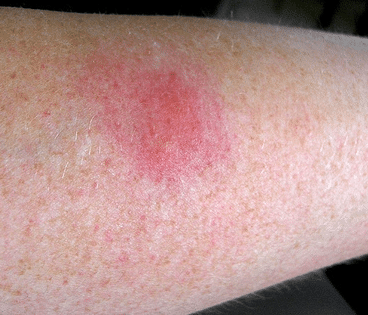
allergy to mosquito bites
Though some of the mosquitoes can carry the West Nile virus, most of the mosquito bites will do nothing more than lead to an itch that in itself can be absolutely maddening.
Luckily, natural (and not so natural) mosquito bites allergy remedies can provide itch relief so you can get back to enjoying the great outdoors this summer.
- Antihistamine cream. This is one of the best bets if you’ve suddenly found yourself the main course of a mosquito feast. When mosquitoes bite you (and siphon out your blood), the body sends histamines to the site of the bite as it doesn’t recognize the mosquito saliva.
An over-the-counter antihistamine cream can assist to soothe the itch. Make sure that the active ingredient in the cream is dyphenhradamine so as to maximize effectiveness. Keep a stick or a tube handy when you’re spending a lot of time outdoors.
If you’d prefer a natural remedy, or just don’t have any cream, there are several household ingredients you can try.
- Ice or a cold compress. A sure way to soothe a mosquito bites allergy fast is to give it a chill pill. The cold sensation can assist to numb the itch and also relieve any swelling that is associated with the bite. Studies have proved the cold can assist to reduce any histamine-related itch, so this can be helpful if you find yourself breaking out in hives from something else also.
- Toothpaste.According to the Farmer’s Almanac, using regular toothpaste to the bite site can assist to relieve the itch. This also can as well reduce the pain of a fire ant bite. It might have something to do with menthol in the toothpaste, which also creates a cooling sensation.
- Baking soda and water. Make a thick paste using baking soda and water, use it to the bite and leave it for a few minutes before washing off. Baking soda and water make an alkaline solution, which neutralizes the pH of the skin so as to provide itch relief.
- Lemon and lime juice.These may help to relieve mosquito bites allergy, but only try the remedy if you haven’t already scratched the bites. Use of citrus juice to open cuts will sting. Also, only use lemon and lime juice if you’re going to be indoors for a while. Using these outside can cause severe sunburns.
- Vinegar.Another common household ingredient that is recommended by the almanac is vinegar. Vinegar’s antibacterial properties make it perfect for bug bites. Put a few drops on a cotton ball and wipe it on bites. If you have the bites all over the body, pour a few cups in the bathtub using warm water and take a soak.
- Essential oils. If you happen to have tea tree oil in the house, its natural antiseptic properties can assist to relieve the mosquito bites allergy. Lavender oil also contains healing benefits. Lavender comes from the Latin word lavare, which implies to wash. A dab of lavender oil as well reduce swelling and relieve discomfort.
- Honey. This golden goo contains many health benefits. It can be applied as a topical anti-bacterial ointment so as to keep bite wounds clean, and its anti-inflammatory properties can help lessen swelling.
- Aloe vera. If you have an aloe vera plant, cut a meaty portion of a leaf so as to extract the gel. You can use the gel directly to the bite, or put it in the fridge for about 15 minutes so as to cool before applying. Its natural antiseptic qualities can reduce swelling and itching.
- Tea bags.You should be aware that you can put tea bags on the eyes to reduce puffiness. They work the same magic on the mosquito bites. Take a cool, used tea bag and then place it on the bite.
Mosquito Bite Allergy Treatment
As with other allergies, prevention is normally the best approach. Mosquitoes need standing or stagnant water so as to breed. Avoid standing water more especially at dusk and dawn when the mosquitoes are most active.
Other ways to prevent mosquito bites are:
- wearing of the protective, light-colored clothing like long-sleeved shirts, socks, and a wide-brimmed hat
- elimination of the standing water around the home (unclog rain gutters, empty children’s pools, clean birdbaths, and empty unused containers like the flower pots)
- repairing of the holes in window or door screens
- using of citronella-scented candles in the outdoor areas or campsites
It’s also very important to use insect repellents containing DEET. The doctors recommends use of products that contains between 6 and 25 percent DEET.
These provide up to six hours of protection from mosquito bites allergy. Follow directions as indicated carefully, and reapply after swimming or even sweating. Since the repellants can also lead to adverse skin reactions, test the product on a small area of the arm and wait 24 hours so as to make sure it’s safe to use on the entire body.
Even the best preventative measures won’t protect you from all bites. In the case of a normal reaction, a hydrocortisone cream or even a calamine lotion can provide relief from itching. A cold pack or a cool bath without soap can assist relieve symptoms as well. For more serious allergic reactions, the following treatments may be applied:
- oral antihistamines
- topical anti-itch lotion or benzocaine
- a cool bath
- an epinephrine auto injector to carry on-hand in case of anaphylaxis
Mosquito bite allergy is very rare, but the reactions might be serious enough to warrant immediate medical treatment. If you have this type of an allergy, then you may consider ongoing treatment from an allergy specialist — more especially if you live in mosquito-prone areas.
Mosquito bite allergy don’t lead to any long-term illnesses or lifestyle intrusions when they’re properly managed. Just be aware of the pests and have the right tools on hand in case you get bitten.
Mosquito Bite Allergy Pictures
Further references;
- 11 natural mosquito bite remedies: http://www.mnn.com/health/allergies/stories/11-natural-mosquito-bite-remedies
- Allergic reactions to bites and stings: http://www.allergy.org.au/patients/insect-allergy-bites-and-stings/allergic-reactions-to-bites-and-stings
- How to Treat Mosquito Bites: http://www.webmd.com/allergies/mosquito-bites
- Mosquito Bites: http://www.orkin.com/other/mosquitoes/mosquito-bites/
- 10 Home Cures for Mosquito Bite Itch: http://www.everydayhealth.com/skin-and-beauty-pictures/18-home-cures-for-mosquito-bite-itch.aspx#02
- Insect bites and stings – Symptoms: http://www.nhs.uk/Conditions/Bites-insect/Pages/Symptoms.aspx
- Mosquito Bite Allergy: http://www.healthline.com/health/allergies/mosquito-bite#Overview1




